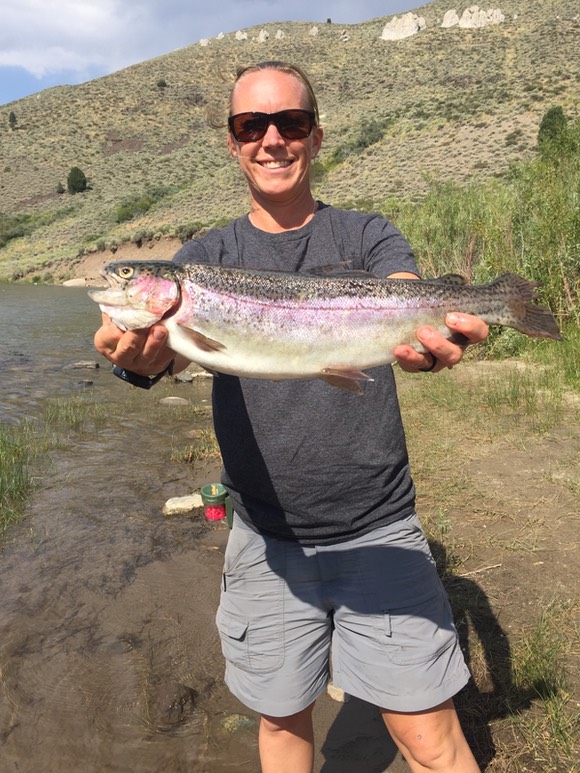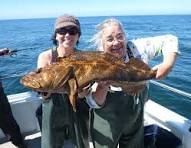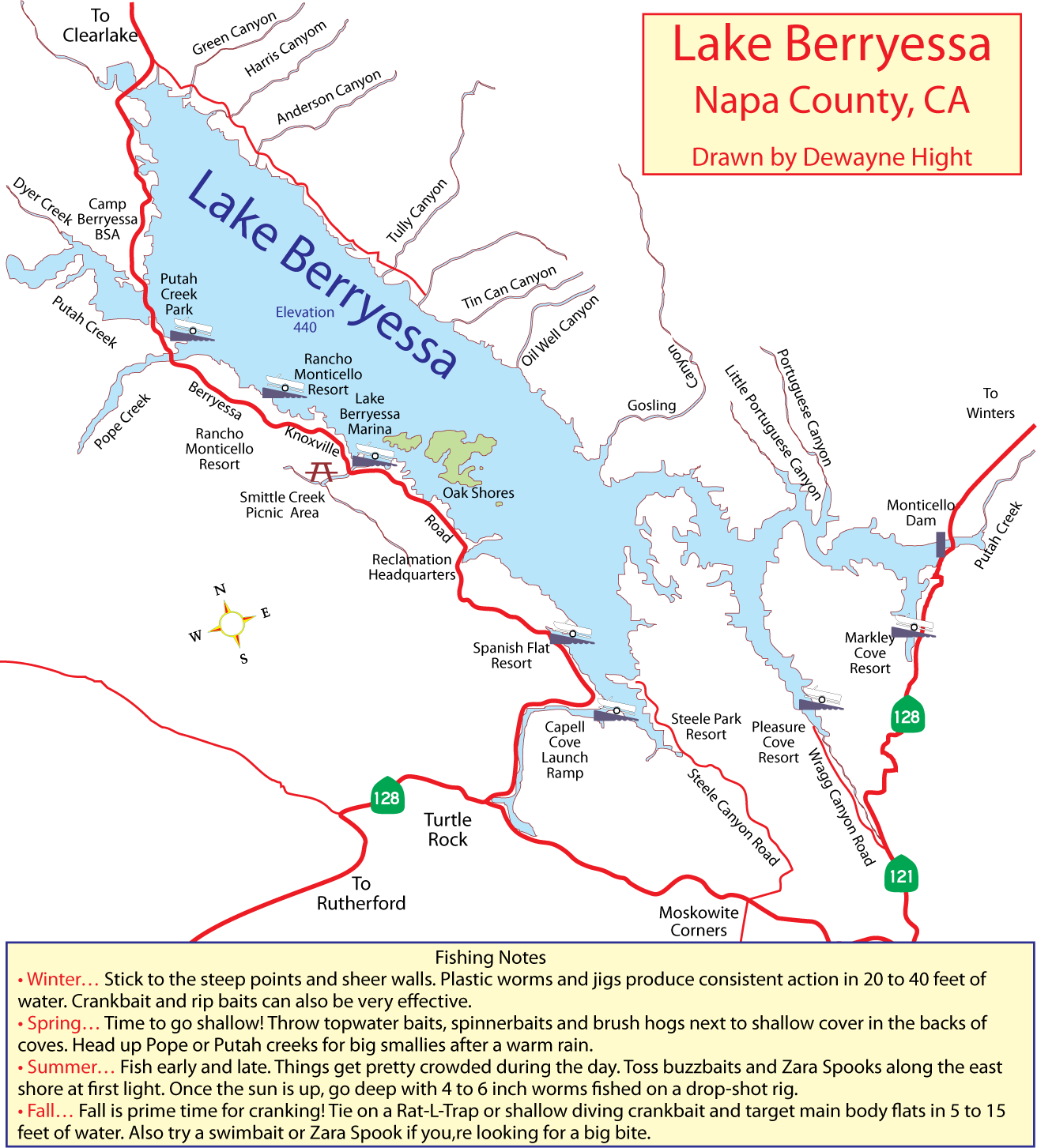
West Walker river fishing report
West Walker River Water is cold but warming and fishing will get better. The flows on the West have come down quite a bit this past week with ranges from around 280 to 32ocfs depending on what t...
Read MoreToday we’re rolling out the Fish Sniffer stand‑alone reader and retiring the old embedded version. The switch delivers a sharper, faster experience, keeps older phones and tablets in the game, and lets you download issues for those zero‑bar stretches on the water or completely off the grid. We’ll keep adding features and will start loading a full archive, so every back issue sits alongside the latest catch. Tight lines and we’ll see you out on the water.
July’s Fish of the Month goes to Captain Zach Gordon and deckhand Nate of Tahoe Sportfishing hauled a 37-inch, 17.4-pound mackinaw from Lake Tahoe’s sapphire depths on June 20.
What we're using
Jack Naves fished Collins Lake in his 20' North River Seahawk. He caught four rainbow trout and one lightning trout to 4.5 pounds using Edge Mag Pro rods in Cannon downriggers. The rods were teamed with Abu Garcia Ambassadeur C3 'Kokanee' levelwind reels loaded with FINS 15-pound test braided line with a 50' top shot of Trilene XT 10-pound test clear. He trolled Rapala F-9 Floating Minnows in the 'Hot Steel' color at thirty feet deep.
Paul Kneeland fished Pyramid Lake with John Brassfield of Trucksmart stores in the Fish Sniffer Rogue Jet 21 Coastal. They caught Lahontan cutthroat trout to 21 pounds, using a Berkley 8'6" Buzz Ramsey Air Rod with an Daiwa Lexa line counter reel loaded with 10 lb test P Line. They trolled 4 inch Silver Horde and B-21 spoons in bright chartreuse/orange and yellow/red and 4 inch Doctor Spoons in copper/black behind Vance's Cannonball flashers, trolling off Canon Downriggers at 40 to 70 feet deep and 2.3 mph.
Dan Bacher fished for rainbow trout at Spicer Reservoir. He used a Berkley Ugly Stick GX2 6' 6" medium action spinning rod, teamed up with a Shakespeare GX235 spinning reel filled with 8 lb. test P-Line CX Premium Fluorocarbon Coated Line. He fished with Berkley Tequila Sunrise Power Bait on a #14 Eagle Claw gold treble hook on a sliding sinker rig.
Live bait fishing adventures are producing limits of both striped bass and halibut on days when the tides are right. Trips on the ocean just outside the Golden Gate are also yielding both species.
Limits of rockfish and some lingcod are being caught in the shallow water reefs along the Monterey and San Cruz County coastline. Shrimp flies, bars, jigs and cut baits are all doing the trick.
Mixed limits of king salmon and rainbow trout are being taken on Folsom Lake. Trolling between 50 and 70 feet deep with 360 flashers/hoochie combinations is your best bet.
Fishing is great for rainbows, kokanee, kings and black bass. Bass anglers are using topwater baits and drop shot rigs for spotted, largemouth and spotted bass, while trollers are landing rainbows, kokanee and kings..
The trout bite at Davis Lake has turned on. Bank anglers are bagging rainbows while using PowerBait and worms. Trollers are finding fish at 18 to 25 feet deep while using copper/red Dick Nites and orange and copper Baby Simon Lures.
Trollers are catching limits of rainbows, with a few browns mixed in, while trolling spoons and spinners. Shore anglers are also bagging trout while using PowerBait, nightcrawlers and flies under bobbers
Anglers are catching limits of rockfish while fishing shallow water with light tackle. Cabezon, browns, canaries, vermilions and lingcod are in the mix
The kokanee bite is sizzling. Experienced trollers are bagging limits while employing gold dodgers paired with orange/gold spinners.
Summer striped bass fishing is in full swing. Cast out topwater lures and swimbaits or fly fish with Clouser Minnows in the early morning and evening hours.
Boaters trolling with live and dead bait are picking up quality halibut. The first white seabass of the season was weighed in at Lawson’s Landing.
Trollers are bagging trout while trolling with spoons and Trout Trix Worms at around 30 feet deep. Expect the bass and catfish bites to heat up.
Kokanee are active in the mornings, schooling between 25–35 feet. Trolling pink or chartreuse hoochies behind dodgers is producing best.
A limited salmon season will open on sections of the Mokelumne, Feather and American rivers, within adjusted seasons and a daily bag limit of one fish. More information:: https://wildlife.ca.gov/News/Archive/limited-chinook-sport- fishing-to-reopen-in-3-central-valley-rivers
Ocean salmon fishing will reopen September 4-7, with a 7,500 Chinook limit. There will be possible additional openings on September 29-30 and into October if quotas remain.
The trout bite is decent right now but expected to improve as the water clarity gets better. Anglers are currently having success anchoring over rockpiles and setting flies a foot off the bottom.
Expect fishing for white and channel catfish to pick up as the weather heats up. Fishing is best early and late with clams, chicken livers and cut baits.
Fresh insights from California's premier fishing destinations.
Your source for real-time fishing conditions and expert tips.

West Walker River Water is cold but warming and fishing will get better. The flows on the West have come down quite a bit this past week with ranges from around 280 to 32ocfs depending on what t...
Read More
Monterey Bay Rockfish Enthusiasts Target Coastal Reefs MONTEREY – Full limits of rockfish, along with a few lingcod, are the rule for charter boats departing from Monterey. The 26 anglers aboard the...
Read More
Delta Tunnel opponents slam Gov. Newsom's revised budget plan to fast-track project SACRAMENTO - Sacramento — Governor Gavin Newsom in May announced, as part of his May Budget Revise, a controversia...
Read MoreDiscover California's premier fishing destinations with our comprehensive collection of detailed maps. From hidden mountain lakes to productive coastal waters, find your next adventure with precise coordinates, access points, and local insights.
